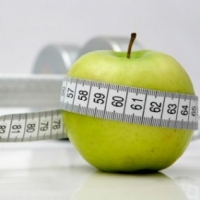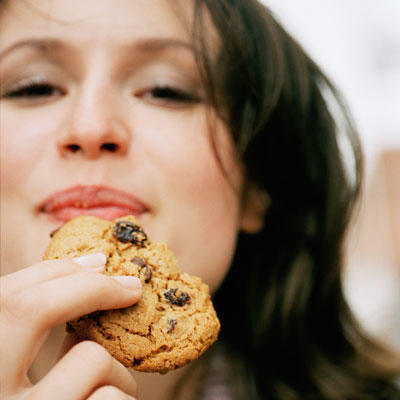How To Stop Sacrificing Sleep Over Your Diabetic Diet Meal Plan
As soon as I talk about the diabetic diet meal plan to my clients, the initial answer from most of them is usually one of contempt and disgust. As a matter of fact, a diabetic meal plan isn’t some kind of special diet but simply a nutritious well balanced diet imperative for good health. Remember that when it comes to dealing with diabetes, it is simply a matter of having an open mind to making little dietary changes. The cornerstone of a healthy diabetic diet is to make sensible food decisions and eat the ideal ratios of carbohydrates, fat and protein. A diabetic diet can be very versatile, it all depends on how you integrate it into your daily schedule.
Count Your Carbohydrates
The main component which impacts your blood sugar levels is the intake of carbohydrates. Most diabetics will find that this requires some modification when they are initially diagnosed. With adequate practice, this will become very effortless and intuitive.
A technique you can to keep your carbohydrate intake in check is carbohydrate counting. It can be a hassle-free aid to plan your meals around the amount of carbohydrates you should consume. Foods rich in carbohydrates include:
1) Crackers, bread rolls and pancakes
2) Muesli, oats and basmati rice
3) Pulses and lentils
4) Starchy veggies eg. peas, potatoes, pumpkin, corn
5) Dairy products
6) Fresh, frozen and tinned fruits
7) Candy and puddings
To plan the number of servings of carbohydrates you can have, bear in mind:
1 serving of carbohydrates = 15g carbohydrates
Practical tools that can provide more information about the amount of carbohydrates in food include online food databases as well as the nutritional facts printed on your food packaging. To simplify things, let me show you some examples
There are about 15g of carbohydrates in:
2 pieces of wheat-bix
1 small potato or 1/2 medium potato
10 grapes or 1 medium stone fruit
1/2 cup fruit canned in natural juice
6 pieces graham crackers
1/2 cup of lentils, pulses or starchy vegetable
2 tablespoons of honey or molasses
An ideal carbohydrate distribution is to have 30-60 grams (2-4 serves) of carbohydrates for main meals and 15-30 grams (1-2 serves) of carbohydrates as snacks. Dependent on your calorie needs, the number of servings of carbohydrates is approximately:
1200kcal: 9-10 servings of carbohydrates
1600kcal: 12-13 servings of carbohydrates
2000kcal: 15-16 servings of carbohydrates
2500kcal: 18-19 servings of carbohydrates
Do bear in mind that is not just the grains and cereals that consist of carbohydrates, but also veggies, fruits, sauces and liquids you consume.
It is crucial that the carbohydrates are evenly distributed throughout your meals. Your body handles small portions of carbohydrates much more effectively than a huge carbohydrate load. To make it simple, if your advised carbohydrate allowance is 13 servings, I would suggest spacing it out so that each meal contains about the same number of carbohydrates. This example is a good guide for you:
Breakfast
1 multigrain english muffin (2 servings)
1 boiled egg
1 glass of skim milk (1 serving)
Morning snack
1 small pear (1 serving)
Lunch
1 cup of cooked brown rice with lean protein and leafy vegetables (3 servings)
Afternoon snack
4 plain crackers (1 serving)
1 glass of skim milk (1 serving)
Dinner
1 palm size steak
1 medium baked potato (2 servings)
1/2 cup kidney beans (1 serving)
Evening snack
1 small pear (1 serving)
You do not have to strictly follow the number of carbohydrate servings recommended if your normal food intake is lesser than my suggestion. The basics of a diabetic diet plan is still about making sure your carbohydrate rich foods are well spread out through the day and to eat what is needed, not excessively.
Do be mindful that if you are on insulin therapy or medications that it is very important to consume a meal after you take your injection or medication. Do not skip a meal as this might drive your body into a state of hypoglycemia (low blood sugar) which can cause loss of consciousness and even death in extreme cases.
Not All Carbohydrates Are The Same
Not only do you have to pay attention to how much carbohydrates but also what form of carbohydrates you are getting. There are generally 2 categories of carbohydrates: Complex and simple
Complex carbohydrates (Good carbs): They do not cause sudden spikes in blood sugar levels. These are your staples such as whole grains and pastas.
Simple carbohydrates (Bad carbs): Sugar rich foods that require little digestion. They usually tend to be of low nutritive value. Basically they are foods that contain only sugar and without much vitamins or minerals. Simple carbohydrates are mainly foods such as sweets and desserts.
Why am I highlighting this? When you have a cup of ice cream versus having a cup of cooked pasta which has similar carbohydrate content, you sugar levels will be much better controlled having the pasta. This means that your body will have a tough time trying to keep your sugar levels under control if you are constantly on a diet of simple carbohydrates. And as I have said before, simple carbohydrates tend to be of low nutrient-density.
It is essentially categorizing carbohydrates based on their Glycemic Index (GI). Food that are low in GI provide you with more optimal sugar control.
Your chance of developing cardiovascular conditions is substantially heightened by just having diabetes. It is important to ensure that your overall diet is healthy to further safeguard your health.
Ensure that you:
Go easy on your salt intake
Limit your saturated fat intake
Enhance your fiber intake
Combine a variety of foods in your diet
Minimize your consumption of alcoholic beverages
Always select foods that are rich in nutrients
To keep diabetes under control, both nutrition and medical management has to go hand in hand. With the right knowledge of the diabetic diet meal plan, you can avoid a lot of unnecessary stress on yourself and family members. Diabetes does not have to be a debilitating condition as long as you are determined to mange it well.
Trained as a dietitian and nutritionist, Kelly Kims has worked her way through hospitals and private clinics. She is an expert on nutritional therapy for weight loss, be it diet for diabetics to very low calorie liquid diets, Kims offers practical weight management techniques for overweight and obese individuals and even women seeking to regain their figure after pregnancy. As an accredited sports dietitian, Kims also educates fitness and sports professionals on performance nutrition. Together with her partner, she runs a <a href="http://”>one stop site that offers easy diets that work, exercise strategies and diet-friendly recipes.
-
How to Lose 26 Pounds in 7 Weeks without Giving Up Your Favorite Foods!
How to Lose 26 Pounds in 7 Weeks without Giving Up Your Favorite Foods
-
Jenny Craig Diet
The following article presents the very latest information on Jenny Cr
-
Do you live in Queens, NY and are looking for the perfect gym?
Finding a gym in Queens, NY can be a chore. There are so many diffe
-
The Psychology of Weight Loss - Getting to the Roots of the Matter!
The Psychology of Weight Loss - Your Approach!We hav
-
Lose Weight Quickly Through 8 Simple Home Remedies
Everyone battles with weight, whether underweight or overweight. It is
-
Are Fiber Supplements Fat Burning Food?
If youre taking a fiber supplement or eating a high
- DON'T MISS
- Why Do You Want To Lose Weight?
- Counting Calories Is Best Way To Regulate Weight
- Life Can Appear Overwhelming For Obese Person
- Fat Burning Furnace Diet Scam
- Fat Loss 4 Idiots Review - Don't Leave Your Loved Ones Behind
- Increase Your Water Intake To Reduce Weight
- Fast Weight Loss Takes Time
- Fast Weight Loss - 4 Surefire Tips to Fit into Your Old Prom Dress at the Next Class Reunion
- Acai Berry Diet - Lose Weight And Live Healthy With The Acai Berry Diet
- About Revitol Anti Cellulite Cream




